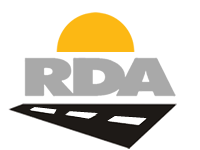The RDA was established under the Public Roads Act No. 12 of 2002. The Agency became operational in 2006 and its mandate as provided for by the Act is to provide for the care, maintenance and construction of public roads in Zambia; to regulate maximum weights permissible for transmission on roads among other things.
RDA remains resolved and determined to oversee the completion of all key infrastructure projects such as the Link Zambia 8000, Pave Zambia 200, Improved Rural Connectivity Project (IRCP), National Road Tolling Programme (NRTP), and other major projects with a focused approach and renewed vigor as set forth in the Strategic Plan in its quest to transform the nation into a truly land-linked country.
Further, the Tolls Act No. 14 of 2011 bestows the mandate to implement of the National Road Tolling Programme (NRTP). The Tolls Act provides for the management of toll roads, provide for private sector participation in the tolling of roads including appointing toll collecting agents, among others.
In executing its mandate, the Agency takes the leading role in the development and execution of the Road Sector Annual Work Plan (RSAWP). In this regard, the Agency executes the RSAWP in collaboration with other Road Sector institutions, like the NRFA and the RTSA.


